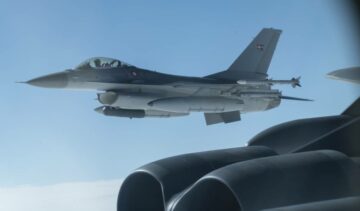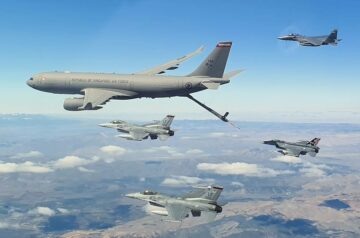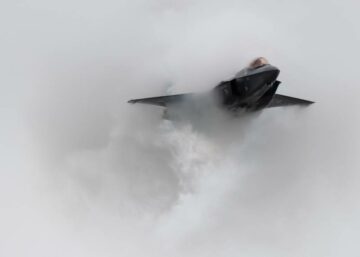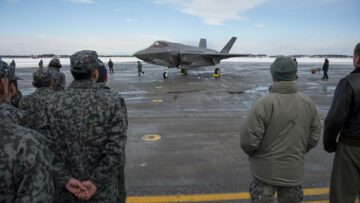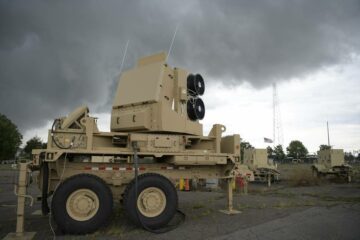WASHINGTON — Booz Allen Hamilton, one of the largest U.S. defense contractors, said it invested in HiddenLayer, a smaller company specializing in digital defenses of artificial intelligence and sensitive networks.
While Booz Allen did not specify how much it spent, or exactly when the deal was completed, it did say the move was made to bolster its adversarial AI portfolio, which aims to shield the increasingly popular algorithms and applications from malign manipulation.
“Our clients operate in complex environments that require AI models be highly specialized, rapidly deployable, and secure,” Matt Keating, who leads Booz Allens’ adversarial AI efforts, said in a statement. “The HiddenLayer investment by Booz Allen Ventures better positions us to integrate startup, commercial, and open-source innovation to rapidly augment our existing capabilities.”
The U.S. Department of Defense and the intelligence community are leaning into AI, autonomy and the like to gain advantages on the battlefield and more effectively parse mountains of national-security information.
Increased adoption, though, can open the door for vulnerabilities, such as data poisoning or code tampering. Systems or equipment with pattern-recognition capabilities require significant amounts of exposure — plentiful, verified information upon which they are trained — to get the job done.
RELATED
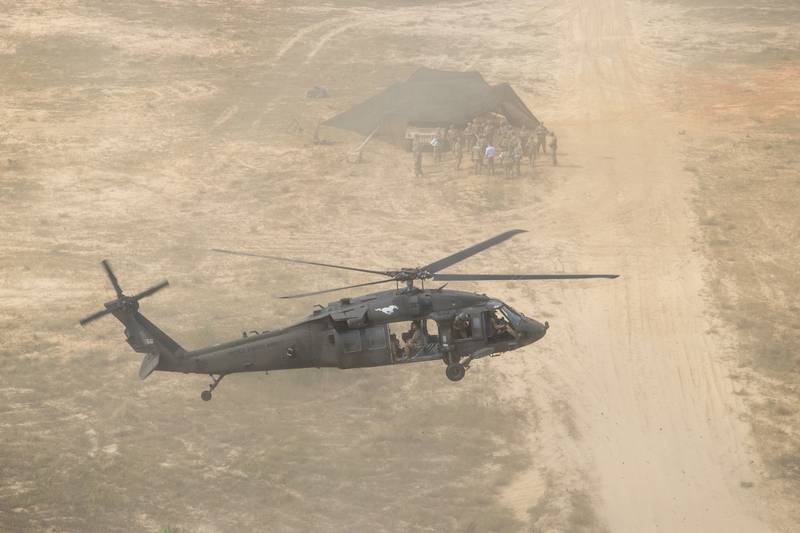
“HiddenLayer’s powerful platform and expert team has proven effective in securing AI from a broad range of threats, so we quickly identified them as a partner that can support and protect our AI deployments,” Travis Bales, managing director at Booz Allen Ventures, said in a statement.
The commitment to HiddenLayer, which in September announced a $50 million funding round, is the latest made by Booz Allen in the AI arena.
The company previously invested in Shift5 and Synthetaic. The former concerns itself with cybersecurity and predictive maintenance. The latter made headlines when it used its AI tools to independently track the Chinese spy ballon that zigzagged across the U.S. earlier this year. Synthetaic in August also announced a cloud-computing partnership with Microsoft.
Booz Allen in 2022 earned nearly $6 billion in defense revenue, securing it the No. 18 spot on the Defense News “Top 100,” a list of the world’s largest defense contractors. The company reaped $5.5 billion the year prior.
Colin Demarest is a reporter at C4ISRNET, where he covers military networks, cyber and IT. Colin previously covered the Department of Energy and its National Nuclear Security Administration — namely Cold War cleanup and nuclear weapons development — for a daily newspaper in South Carolina. Colin is also an award-winning photographer.
- SEO Powered Content & PR Distribution. Get Amplified Today.
- PlatoData.Network Vertical Generative Ai. Empower Yourself. Access Here.
- PlatoAiStream. Web3 Intelligence. Knowledge Amplified. Access Here.
- PlatoESG. Carbon, CleanTech, Energy, Environment, Solar, Waste Management. Access Here.
- PlatoHealth. Biotech and Clinical Trials Intelligence. Access Here.
- Source: https://www.defensenews.com/artificial-intelligence/2023/10/02/booz-allen-hamilton-invests-in-ai-security-startup-hiddenlayer/
- :has
- :is
- :not
- :where
- 1
- 100
- 11
- 2022
- 70
- a
- across
- administration
- Adoption
- advantages
- adversarial
- AI
- AI models
- aims
- algorithms
- allen
- also
- amounts
- an
- and
- announced
- applications
- ARE
- Arena
- artificial
- artificial intelligence
- AS
- At
- AUGUST
- Autonomy
- award-winning
- Battlefield
- BE
- Better
- Billion
- bolster
- broad
- by
- CAN
- capabilities
- Carolina
- chinese
- clients
- code
- cold
- commercial
- commitment
- community
- company
- Completed
- complex
- Concerns
- contractors
- covered
- covers
- cyber
- Cybersecurity
- daily
- data
- deal
- Defense
- Department
- department of defense
- Department of Energy
- deployments
- Development
- DID
- digital
- Director
- done
- Door
- Earlier
- earned
- Effective
- effectively
- efforts
- energy
- environments
- equipment
- exactly
- existing
- expert
- Exposure
- false
- For
- Former
- from
- funding
- Funding Round
- Gain
- get
- Hamilton
- he
- Headlines
- highly
- How
- http
- HTTPS
- identified
- image
- images
- in
- increasingly
- information
- Innovation
- integrate
- Intelligence
- into
- invested
- investment
- Invests
- IT
- ITS
- itself
- Job
- jpg
- largest
- latest
- Leads
- List
- made
- maintenance
- managing
- Managing Director
- matt
- Microsoft
- Military
- million
- models
- more
- move
- much
- namely
- National
- nearly
- networks
- news
- no
- nuclear
- Nuclear weapons
- of
- on
- ONE
- open
- open source
- operate
- or
- our
- partner
- Partnership
- photographer
- platform
- plato
- Plato Data Intelligence
- PlatoData
- Popular
- portfolio
- positions
- powerful
- predictive
- previously
- Prior
- protect
- proven
- quickly
- range
- rapidly
- reporter
- require
- revenue
- round
- s
- Said
- say
- Screen
- secure
- securing
- security
- security startup
- sensitive
- September
- Shield
- significant
- smaller
- So
- South
- South carolina
- specialized
- specializing
- spent
- Spot
- startup
- Statement
- such
- support
- Systems
- team
- that
- The
- Them
- they
- this
- this year
- though?
- threats
- to
- tools
- track
- trained
- u.s.
- U.S. Department of Defense
- upon
- us
- used
- Ventures
- verified
- Vulnerabilities
- war
- was
- we
- Weapons
- when
- which
- WHO
- with
- world’s
- year
- zephyrnet

